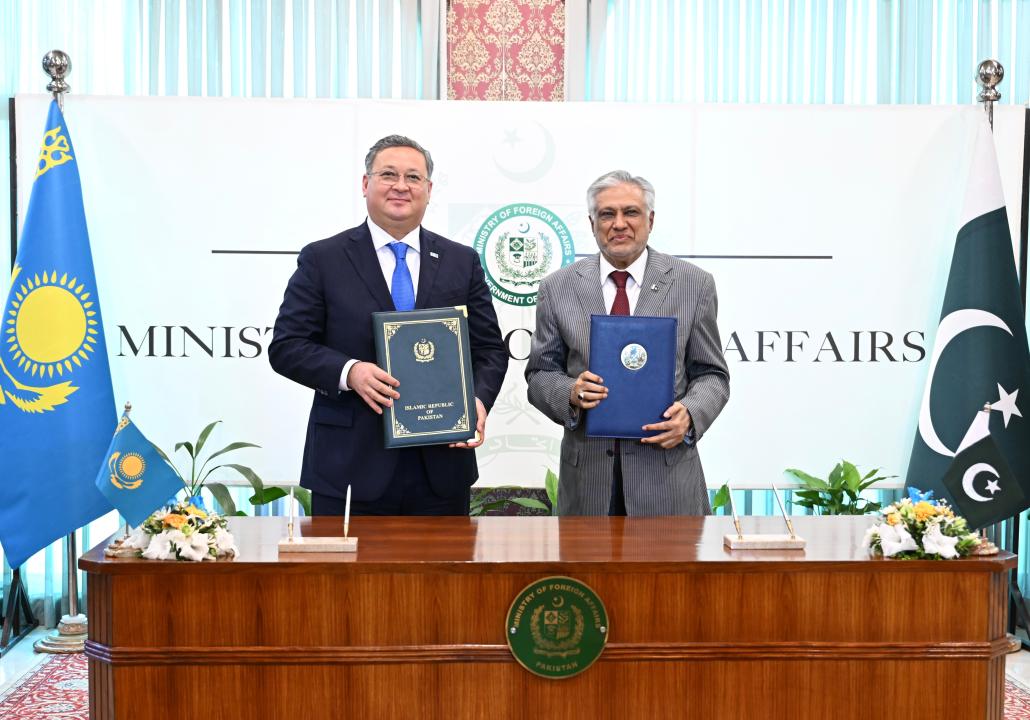ASTANA, Kazakhstan, September 9. Kazakhstan’s Foreign Minister Murat Nurtleu met with Pakistan’s Deputy Prime Minister and Foreign Minister Mohammad Ishaq Dar to sign a Joint Action Plan for 2025-2026, aiming to deepen bilateral cooperation, Trend reports via Kazakh MFA.
Meanwhile, the joint action plan will become an important tool for the consistent implementation of the agreements reached.
Moreover, in the course of the meeting, the parties discussed the current state and prospects for the development of bilateral cooperation, with particular attention paid to deepening trade and economic partnership and bringing cooperation to a qualitatively new level.
In particular, the leaders of the foreign policy departments of the two countries noted the importance of taking practical measures to achieve the goal of increasing trade turnover to $1 billion in the coming years, as well as exchanged views on the prospects for cooperation in the fields of transport, logistics, agriculture, energy, and the IT sector. Special emphasis was placed on transport connectivity and improving the efficiency of transit logistics.
In the course of the meeting, Nurtleu emphasized that Pakistan is our time-tested friend and important partner in South Asia. There is a substantive political dialogue between our countries, including contacts at the highest level
In turn, the Foreign Minister of Pakistan, Dar, stressed Islamabad’s interest in expanding practical contacts with Astana.
“Our countries have significant potential for cooperation in trade, economic, and humanitarian spheres. We are ready to work to give new impetus to joint efforts for a stable and prosperous future for our peoples,” Dar noted.
The interlocutors “synchronized their watches” on regional and global agenda issues, including dialogue within the UN, CICA (Conference on Interaction and Confidence-Building Measures in Asia), SCO (Shanghai Cooperation Organization), OIC (Organization of Islamic Cooperation), as well as mutual support in promoting international initiatives of the two states.
The prospects for cooperation in the cultural and humanitarian spheres were discussed separately, where the ministers confirmed their mutual desire to give new impetus to humanitarian exchanges, including strengthening cooperation in the fields of tourism, sports, and education.
Following the negotiations, the parties agreed to continue political dialogue, intensify joint projects in priority sectors, and ensure effective coordination between relevant state bodies.







